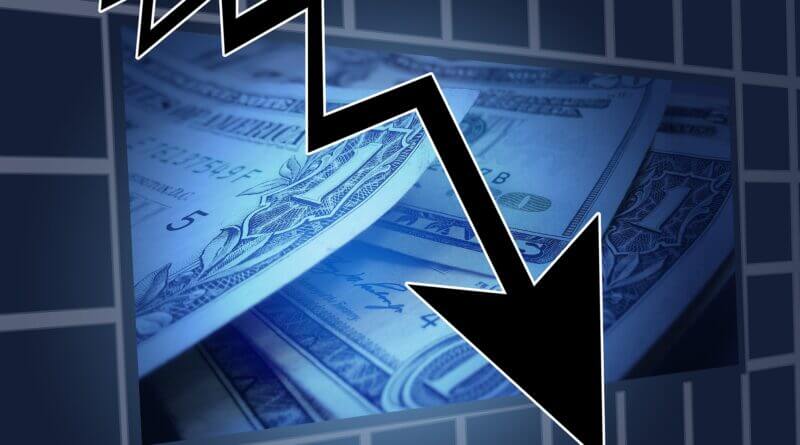Money Moves to Make During a Recession
By: Charlestien Harris
The state of the economy has been a “hot” topic as of late and financial experts have long been talking about a possible recession. Questions you might be asking are: What is a recession and how could it affect me? And, how can I protect myself during a recession?
In simple terms, a recession is defined as a significant decline in economic activity that lasts for months or even years. With that being said, let’s look at how you can possibly “recession proof” your finances and be able to survive the economic changes that may be coming down the road. Here are a few options to consider when trying to prepare your finances for a looming recession.
- Establish an Emergency Fund
This option should already be a staple in your financial plan. Having an emergency fund can help you be prepared for emergencies that might occur, and allows you to have some “wiggle room” when it comes to your finances. Also, if you have your own cash, you will be less dependent on borrowing to cover unexpected costs or the loss of a job. Only use your emergency fund to cover necessary expenses, but keep your budget tight on discretionary spending in favor of making that emergency fund last. If you do have to pull from your emergency fund, you should restore the money used as soon as possible. - Try to Live Within Your Means
When you make it a habit to live within your means during the good times, you are less likely to go into debt when gas or food prices go up, and more likely to adjust your spending in other areas to make up for the income loss or price hikes. To take this principle to the next level, if you have a spouse and are a two-income family, see how close you can get to living off of only one income. In good times, this option may allow you to save incredible amounts of money – potentially allowing you to retire or pay off your mortgage earlier. You could even build up a sizable savings account! - Additional Income Can Fill in the Gap
Even if you have a great full-time job, it’s not a bad idea to have a source of extra income on the side. Once a recession hits, if you lose one stream of income, at least you will still have the other. You may not be making as much money as you were before, but every little bit helps. You might even come out the other end of the recession with a growing new business as the economy turns up. A lot of people discovered this option during the pandemic. - Keep Your Credit Score High
Often during a recession, the credit market tightens. More than likely if anyone is going to get approved for a mortgage, a credit card, or another type of loan, it will be those with excellent credit. Factors like paying your bills on time, keeping your oldest credit cards open, and keeping your ratio of debt to available credit low will help you keep your credit scores high. When times get tough, you should communicate with your creditors to keep them informed by making arrangements to keep your accounts in good standing. Many lenders and businesses would rather see you continue to be a customer than to have to write off your account as bad debt. - Invest for the Long Term
Stock and equity investments tend to drop just before a recession. Stock markets usually decline sharply for several months during a recession, then bottom out about six months after the start of a recession. Having any investments in the stock market can be a risky move at any time. But, if you are already in the stock market, you should remember that the stock market comes and goes in cycles. Know your risk tolerance level. Investments are supposed to provide you with a sense of financial security, not a sense of panic. If you are unsure about what moves you should make with your stock investments, be sure to seek help from a professional or certified financial planner. - Create a Budget, or Review Your Current Budget
I know I mention creating a budget or spending plan a lot, but that’s because it is an essential tool to a healthy financial life – especially when a recession hits. Creating a budget is a great way to figure out where your money’s going right now and to make sure it’s allocated to the right places. If you already have a budget, now’s a good time to review it. Start by making a list of your monthly expenses. Then, ask yourself if there’s anything you don’t need. You can then redirect some or all of that money to your emergency fund. Next, ask yourself if there are any living expenses you don’t have to pay right away. Economies change, so make sure your financial plan changes with it. The financial plan you develop needs to have flexibility.
There are many everyday habits you can implement to protect yourself ahead of time from the sting of a potential economic downturn or recession. Having an emergency fund, strong credit, multiple sources of income, and living within your means are all important tools that can help you get through a rough stretch in the economy in one piece.
If you would like additional information about this and other financial topics, visit www.banksoutnern.com/blog. You can also contact me at Charlestien.Harris@banksouthern.com, or 662-624-5776.
Until next week – stay financially fit!
Charlestien Harris is a financial contributor to DeSoto County News. She is a financial expert with Southern Bancorp Community Partners whose articles are seen in a number of publications around the region. You’ll be seeing her columns weekly on the DeSoto County News website and our social media channels.






